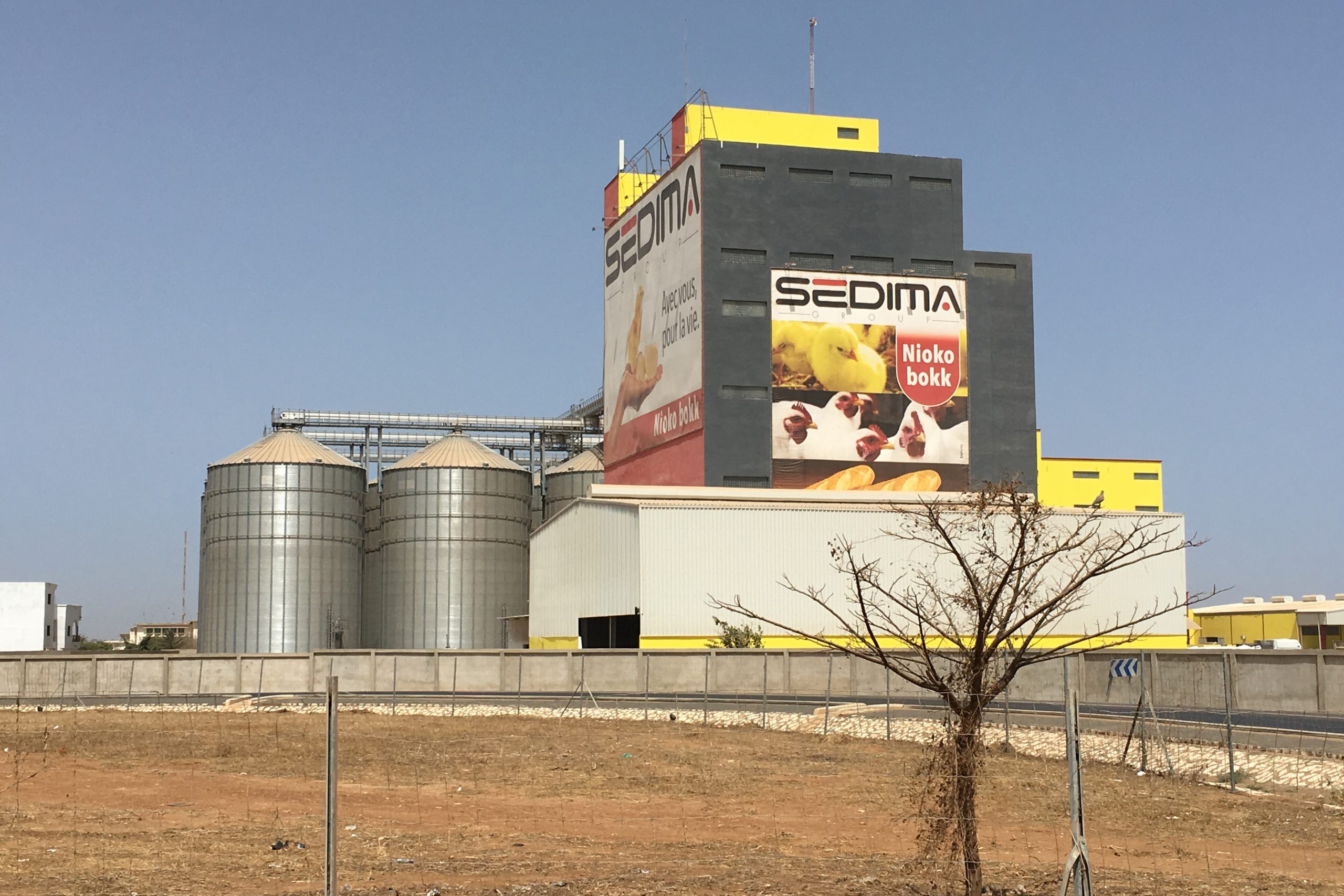Africa: Growth and challenges for animal feed

It is often said that Africa has great potential to boost its agricultural output and productivity. And this is also needed, because demand for animal proteins is rising on this continent. Here we take a glimpse at the current situation in some African countries and the opportunities to invest.
Africa is considered the continent to watch in the 21st century. With a current whopping 1.2 billion inhabitants and a population expected to reach 2 billion in 2050, it is questioned where the focus will be put. Housing, infrastructure, mobile technology, food production?
Feed and food production in Africa
Let’s put our focus on the efforts made to step up feed and food production in Africa. African countries are considered an oasis to source a variety of agricultural commodities, such as cocoa, cashew nuts, coffee, cotton, rubber, tropical fruits or more recently, flowers (roses). The eastern part of the continent is for example known for the cashew nuts production (Tanzania) and the rose business (Kenya and Ethiopia) and we see that investments in these type of products are done by investment companies outside Africa. Also investments are made in grain processing for example.
Rise of food chains and supermarkets
Africa is often referred to as a continent with great potential. The sunshine, the central part with its green and wet parts and the enormous land space available. But livestock and agricultural production are still far behind Western countries. At the same time, the demand for food, and in particular animal protein, is rising on a global level, with particular growth in developing areas such as Africa. In Africa, the number of people belonging to the so-called ‘middle class’ is rising and this means that this group of consumers has on average more money to spend for food (mainly meat and eggs) than before. This is already reflected in the number of livestock farms built over the years and the arrival of Western fast food chains like Kentucky Fried Chicken (KFC), as seen in Ghana, Ivory Coast and Senegal (soon) amongst others. Also supermarket chains like Carrefour have entered Africa (opening stores in eight countries in Western Africa and Kenya).
Investments in mills and poultry farms
But not only restaurant chains and supermarkets are sprouting up in Africa. In Western and Eastern Africa, investments in animal feed mills, poultry houses (for both broiler and egg production) and slaughterhouses is currently booming. We also see an increase in the production of poultry feed, cattle feed (Table 1) and aquafeed. The investments in Africa are done by either local people, international agribusiness firms that are already involved in business in Africa, international agribusiness firms or funds looking for new opportunities or African countries (such as Morocco or South Africa) that are investing in neighbouring countries. An interesting example is the poultry integrator Sedima in Senegal. Created by Babacar Ngom, Sedima can be considered the giant of the Western African French speaking countries. Established in 1976 with only 120 chicks, Sedima has seen many improvements and investments over the years. Last year, a new feed mill with a capacity of 40 tonnes per hour was opened. The company has its own slaughterhouse with Stork equipment and with a capacity of 4,000 to 6,000 chicks per hour. The company now also works together with KFC to supply their broiler meat. The first restaurant will open soon. Today, Sedima is market leader in Senegal with a market share of 35% in one day chickens and a market share of 29% for animal feed. It is a perfect example of a small, local African business that has grown into a very successful large company, partly fuelled by investment money from different sources. And now that the company has become so successful it has started to invest in Mali (a hatchery and a feed mill) and two other countries in Central Africa.
Big plans for US and Singapore firms
So what will be next? Will there be more examples like Sedima in the near future or will this remain the sole success in Africa? Many countries are eager to start a business in Africa or sell their current products (like feed additives) so it is expected that in the coming years more agricultural companies will flourish. Agricultural companies can take a share in this by investing locally, buying an existing feed mill, a premix company, a distributor or create a new farm or feed mill from scratch. It is likely that this will be seen more in the near future in Africa. In February 2018, US based Seaboard Corporation invested US$ 357 million in Ivory Coast and Senegal to acquire 2 mills of the Groupe Mimran to increase their presence in the West African grain trading arena. The mills purchased produce both flour and animal feed. With the acquisition, Seaboard now operates grain-related businesses in 41 locations in 22 countries in Africa, South America and the Caribbean. Another example is the Singapore-based firm Olam, with a strong link to Africa. The story of Olam started in Nigeria in the late 80s. In 2017-2018, the group opened 2 state of the art feed mills (with a capacity of 40 tonnes per hour each) and commissioned two mega investments (US$ 150 million) to be used for fish and poultry farms, hatcheries and storage facilities. It is expected that Olam will soon reach a feed production of around 600,000 tons (poultry and fish) per year. Olam is actively involved in growing the aquaculture sector in Africa (and mainly in Nigeria). Producing fish is part of Olam’s plans to target Africa’s growing middle class.

Many opportunities for feed additives
The examples mentioned in this article give hope that Africa’s potential regarding food and feed production can actually be converted in to real business. At the same time, the African continent is facing a number of challenges. Avian flu is one of these main concerns. Some countries such as Senegal have started vaccinating poultry flocks. Some other countries, such as Cameroon, are still in recovery mode after a huge outbreak in 2016-2017. But despite the challenges, the overall trend seen is growth. Broiler meat and egg consumption are both still low (from 2 to 5 kilograms per inhabitant depending on the country), which means that there is potential to step this consumption rate of poultry products up. In addition, the egg sector doesn’t need a cold chain approach, so beneficial for African countries. And there is still a lot of room for international players to be active in the African agricultural sectors. Investments in Africa are coming from a variety of countries like USA, Singapore, Israel, Lebanon, India, The Netherlands, France, Germany. In the field of premixes, concentrates, feed additives and animal health products distribution there are still a lot of opportunities. There are many distributors of animal health products in Africa, selling products coming from Europe, the US or India. But these re-sellers are starting to diversify their business with feed additives. As they learn more about the power of feed additives as an effective solution to reduce antibiotics in livestock, we will see that these distributors will not only sell veterinary drugs anymore. These feed additives are sometimes also sold directly to farmers, so investment in training and knowledge about the mode of action and use of these ingredients is also very important. It can be concluded that there’s a strong growth pipeline for the next 20-30 years in Africa. As the African population grows and the economics improves, partly fuelled by investments from both African countries as aboard, it is possible that Africa can achieve its fullest potential.
New market study: A tool for investorsThe French consultancy company Agri Reseaux International has recently published an extensive study on the animal feed markets in Western Africa (Nigeria, Ivory Coast, Ghana, Cameroon and Senegal). This 400 page report includes statistics and 180 company profiles of the key players in production (integration, hatcheries, feed mills, premixers) and distribution (animal feed and health). This report can help export managers, marketing managers, general managers and investors make the right decision to invest or do business in Africa. The information provided in this report has been gathered in 2017 and 2018. Agri Reseaux International also does market studies in other countries of the world. A similar market study was done in 2017 about East Africa. For more information about the reports and how to purchase you can contact Xavier Cadiou at arinternational@orange.fr or visit the website for more information: www.agrireseauxinternational.com. |











